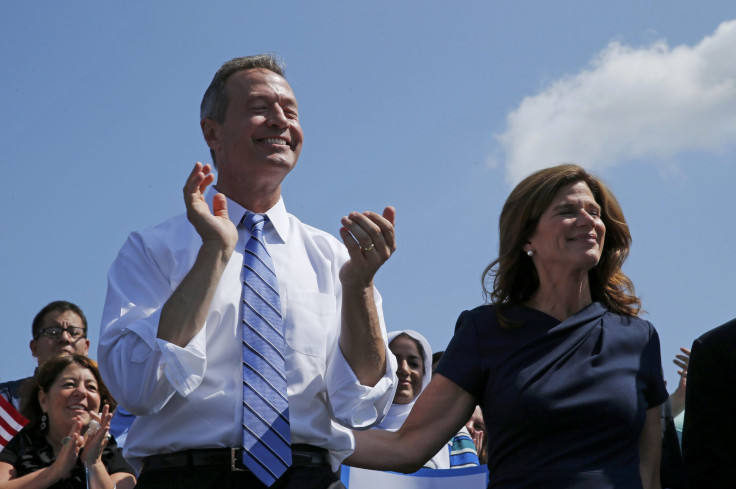Election 2016: Hispanic Voters Courted By Hillary Clinton, Martin O'Malley; Key To Democratic Win

WASHINGTON -- It was a pretty blunt challenge to Democratic presidential candidate Martin O’Malley as he spoke before the Hispanic Chamber of Commerce on Wednesday: Hillary Clinton has a strong “foothold” with Hispanics, the questioner said: How could O'Malley overcome it?
There have been years of speculation about how Hispanics will vote in the 2016 general election. Democrats and Republicans see the voting bloc as key to winning the White House. But with more Hispanics identifying as Democrat than Republican and the continued growth of Latino voters, wooing this demographic is also important to winning the party's nomination.
For O’Malley -- who is more than 50 points behind Clinton in most polls -- picking up Hispanic support is key to gaining ground in the primary. His appearance on Wednesday before the group of Hispanic business owners was one of his first after announcing his candidacy on Saturday.
O’Malley made the case that he’s the most immigration-friendly person in the Democratic primary. He cites Maryland’s passage of a version of the DREAM Act while he was governor and the decision to let unaccompanied minor immigrants into his state during the border crisis last summer. He cites statistics about how many contracts the state entered with Hispanic-owned businesses during his tenure.
“I plan to run a campaign that offers new leadership, executive experience with progressive values and the fearlessness that I believe will rally people to this candidacy,” O’Malley said when asked to distinguish his and Clinton’s immigration platforms. There isn’t a lot of space between O’Malley and Clinton -- or any other Democrat running for president -- on the issue of immigration.
Just how much of the Democratic electorate is comprised of Hispanics isn’t clear. They’re the fastest growing group of voters and polls have consistently found them registering Democratic and turning out to vote for their candidates. And both Clinton and O’Malley have moved quickly to hire outreach staffs, a clear signal they see courting Latinos early as a priority.
Several key primary states have large Hispanic populations, including Nevada, which holds the first primary in the West. Colorado, another state with a large Latino population, will vote on Super Tuesday. And Arizona and Utah will vote a few weeks later.
A 2012 poll by Gallup found that Hispanics overwhelmingly identify as Democrats. Asked which party they affiliate with, 45 percent of Hispanics who are registered to vote picked the Democrats, compared to 36 percent independent and 16 percent Republican. When Gallup asked those independents to say which way they lean, the gap grew wider, with 60 percent saying they were Democrats and 27 percent Republican.
Clinton has always done well with Hispanics. Even though she lost the 2008 Democratic nomination, she won Hispanics during the primaries by a two-to-one margin, the Pew Research Center found. In some of the biggest states, the share of Hispanic voters turned out to be key to Clinton.
In California, Hispanics made up 30 percent of the Democratic primary electorate. And Clinton won 64 percent of those voters while Obama took only 26 percent, according to exit polls. In New Mexico -- a swing state -- Hispanics accounted for 35 percent of the Democratic primary voters, and Clinton won 62 percent of them. In Texas, Hispanics accounted for 32 percent of the Democratic electorate, and Clinton won 66 percent of them.
Courting Hispanic voters in the primary may appear to be a different undertaking than in the general. “I plan to run a campaign that offers new leadership, executive experience with progressive values and the fearlessness that I believe will rally people to this candidacy,” O’Malley said when asked to distinguish his and Clinton’s immigration platforms. But in fact the announced Democratic presidential candidates share nearly identical positions on immigration and the need to reform the existing system. So candidates will have to look at other issues that matter to Latinos.
Exit polls from the 2014 midterm elections found that the economy was even more important to Hispanic voters than it was to the general population. Of those polled, 49 percent of Hispanics said the economy was the most important issue facing the nation, compared to 45 percent of the entire population. When it came to health care, Hispanics cited it as the top concern at a lower rate than the rest of the electorate.
© Copyright IBTimes 2024. All rights reserved.






















